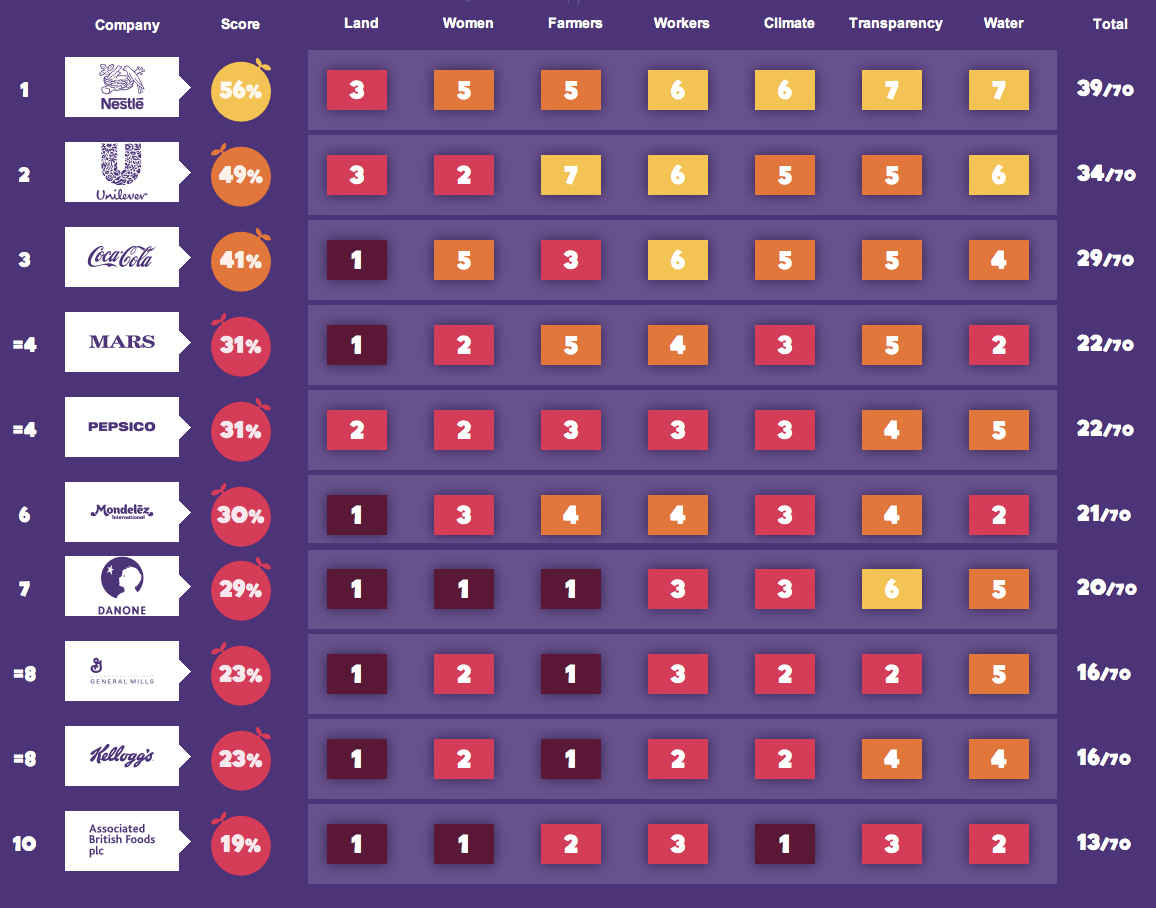Despite its declared spirit of competition, the global economy is monopolized. No wonder that hundreds of most-loved food and drink brands are owned by as few as 10 big-name corporations. These are they, who are most often blamed for collapsing the food supply system, contaminating the planet, causing global warming and exacerbating poverty and hunger.
To research their level of responsibility and to help them do better, 18 months ago the charity organization Oxfam initiated a study on how Coca-Cola, Mondelez, Danone and seven other global food and drink companies manage their natural and human resources, influencing the environment and local farming communities. In February 2013, an online platform “Behind the Brands” was launched to reveal the results of the research and let people learn the bottom sides of the food brands they love. Unfortunately, the results of both January and the most recent July scoring were disappointing— none of the companies gained a «good» score with Nestlé leading the chart with 56% «fair» overall performance.

Based on the surveys among academics, industry experts and local Oxfam staff in low-income countries, the research team collected data across the ten food corporations on seven major sustainability areas such as usage of land, fair and equal working conditions for women, farmers and workers, impact on climate changes, transparency of all the production processes, usage and recycling of water—and assigned score from 0 to 10 by each criteria.
While one of the biggest problems is the lack of transparency and the atmosphere of secrecy around how the ingredients are grown and the workers are treated in the researched supply chains, some of the companies fairly shared information on all the criteria, as well as agreed on «not so good» performance on some. For example, Coca-Cola, Nestle, Pepsico and Unilever publicly acknowledged that women in the farming communities lacked access to training. Yet all the companies agree that they may not understand their supply chains well enough, thus can’t identify the areas of high risk to tackle them, but are eager to collaborate with Oxfam to improve their practices.
The charity organization is keeping an eye on the Big Ten companies’ activities towards making supply chains more ethical and will be updating the scorecard shortly.
As mentioned above, none of the companies has shown a «good» score by any of the criteria so far. The most transparent company in terms of managing their supply chain as of July 2013 was named Nestlé. The poorest performance was demonstrated by the brand owner of the popular Twinings tea, Associated British Foods Plc, with 19 per cent sustainability performance.